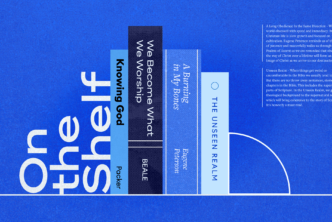As much as at any other point in history, the world’s major religions are engaging with each other in powerful—sometimes violent—ways. This raises a few questions. How are Christians to relate to other world religions? Can they coexist? If so, how?
These are the questions Dr. Michael Goheen answers in the Mobile Ed course TH191 Missional Approach to World Religions.
Two Approaches to Interreligious Interaction
Dr. Goheen suggests that there are two options for how different religions can coexist.
The first option for coexistence is for all of the world’s major religions—Christianity, Judaism, Islam, Hinduism, and Buddhism—to conform to the dominant religion of their particular setting. This has been played out in numerous ways throughout history—Christianity in the Middle Ages, Islam in the Middle East, or humanism in much of the Western world today.
In contrast, the second option for coexistence is for the unique realities and claims of the major world religions to be acknowledged in their own particularities, and for these differences to be held in tension as we ask, “How do we live together?” An example of this approach is found in many of the largest American cities, where Christians, Jews, Muslims, Hindus, and Buddhists are all allowed to worship according to their unique beliefs.
Borrowing from the world-renowned missiologist Lesslie Newbigin, Dr. Goheen suggests “missionary encounter” as the way Christians ought to interact with other religions. According to Dr. Goheen, missionary encounter describes a noncoercive encounter between ultimate and comprehensive religious commitments that gives shape to an entire way of life.
A missionary encounter precludes any kind of violent or coercive encounter with folks from other religions. There will be an encounter between those all-embracing claims, but that encounter must never turn violent and never turn coercive.
This encounter is noncoercive because the Gospel does not coerce anybody to believe, but invites belief. So, a missionary encounter is going to be the only option—I believe—over against the possibility of making one religion the public religion of the day, and accommodating all others.
Study TH191 in a Moderated Study Community with Summer Session
If you’re working in a ministry or simply living in a setting that requires you to think about how Christianity relates to other major world religions, you won’t want to miss Mobile Ed Summer Session—the first-time opportunity to study Dr. Goheen’s Missional Approach to World Religions course in a community, moderated by Dr. Dale Brueggemann.





